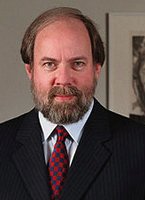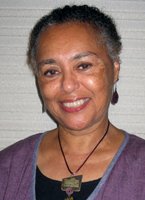Lotte Bailyn '51, Frank Easterbrook '70, and Judy Richardson '66 to Receive Honorary Degrees at 140th Commencement
Lotte Bailyn '51, Frank Easterbrook '70, and
Judy Richardson '66 to Receive
Honorary Degrees at 140th Commencement
by Alisa Giardinelli
2/22/2012
Swarthmore College President Rebecca Chopp will award honorary degrees to pioneering social scientist Lotte (Lazarsfeld) Bailyn '51, highly respected jurist Frank H. Easterbrook '70, and award-winning documentary film producer and activist Judy Richardson '66 at the College's 140th commencement on Sun., May 27. About 350 seniors are expected to graduate at the ceremony, which will be held at 10 a.m. in the Scott Outdoor Amphitheater.
For the second straight year, simultaneous translation in Spanish will be provided during Sunday's ceremony. In addition, Mandarin translation will be offered for the first time.
Lotte Bailyn '51

Social scientist Lotte Bailyn '51 is the T. Wilson (1953) Professor of Management Emerita at MIT and former co-director of MIT's Workplace Center. An authority on conditions in the workplace, Bailyn has long challenged assumptions about current work practices. Following decades of research into telecommuting, flexible scheduling, family benefits, and work redesign, she concludes that it is possible - and imperative - for employers to redesign work arrangements in order to create equitable, family-friendly work environments to meet the goals of both business productivity and employees' family and community concerns. Much of this work is incorporated into her most recent book, Breaking the Mold: Redesigning Work for Productive and Satisfying Lives.
Bailyn first joined MIT's faculty in 1957 as an instructor in the Department of Economics and Social Science. She later became the first woman faculty member at MIT's Sloan School of Management. As chair of the MIT faculty, Bailyn played a key role in the release of a 1999 report that uncovered serious and debilitating gender inequalities at MIT's School of Science - demonstrating, among other things, that women had lower salaries, less lab space, and fewer resources for research than their male counterparts. She later received MIT's Gordon Y. Billard Award for "special service of outstanding merit performed for the Institute."
Bailyn came to the U.S. as a Jewish refugee from Austria. She graduated with high honors in mathematics from Swarthmore in 1951 and earned an M.A. (1953) and Ph.D. (1956) in psychology from Radcliffe College, as was necessary then for women who did their graduate work at Harvard University. In 2004, Bailyn noted that the independence "necessitated" by the College's honors system paid off many times in her career. "Indeed, nothing in getting my Ph.D., or in anything I have done since," she said, "has come close to the anxiety and final sense of achievement of the honors orals."
Bailyn is a Fellow of the American Psychological Association and a Charter Fellow of the Association for Psychological Science, among numerous other affiliations. She is also the recipient of the Work Life Legacy Award from the Families and Work Institute, the Everett Cherrington Hughes Award for Careers Scholarship from the Academy of Management, and has an honorary doctorate from the University of Piraeus in Greece.
Frank Easterbrook '70

Frank Easterbrook '70 is the Chief Judge of the United States Court of Appeals for the Seventh Circuit. One of the most cited appellate judges in America, he is noted for his economic analysis of law, his legalist approach to judicial interpretation, and his clear writing style.
Following graduation from the University of Chicago Law School in 1973, Easterbrook clerked for First Circuit Judge Levin Campbell and then joined the U.S. Solicitor General's Office, briefing and arguing cases before the Supreme Court for five years. In 1979, he joined the faculty of his law school alma mater and became the Lee and Brena Freeman Professor of Law in 1984. The next year, Easterbrook was confirmed to the Seventh Circuit after being nominated in his thirties by President Reagan, becoming the youngest federal appellate judge since 1892. He has served as its chief judge since 2006.
Easterbrook's legal interests include antitrust law, criminal law and procedure, and other subjects involving implicit or explicit markets. He was a member of the S.E.C.'s Advisory Committee on Tender Offers in 1983 and was elected to the American Law Institute in the same year and to the American Academy of Arts and Sciences in 1992. Between 1982 and 1991, he served as an editor of the Journal of Law and Economics. Easterbrook is the co-author of The Economic Structure of Corporate Law (1991), among other titles, and has also published dozens of scholarly articles.
A native of Buffalo, N.Y., Easterbrook earned a B.A. in 1970 from Swarthmore with high honors in economics and political science. At the University of Chicago Law School, he was an editor of the Law Review and continues to serve there as a senior lecturer.Judy Richardson '66

An award-winning documentary film producer and civil rights activist who lectures and conducts teacher workshops, Judy Richardson began her life of activism at Swarthmore in the early 1960s. Her weekend trips with fellow Swarthmore students to protest segregated facilities in Maryland introduced her to members of the Student Nonviolent Coordinating Committee (SNCC). After completing her freshman year, Richardson left Swarthmore to join SNCC in organizing with local African American communities in Mississippi, Alabama, and Georgia to eliminate racist practices in those states. Her experiences with SNCC are recounted in Hands on the Freedom Plow: The Personal Accounts by Women in SNCC (2010), the anthology of 52 SNCC women's writings she co-edited.
In 1968, Richardson co-founded Drum & Spear Bookstore in D.C., then the country's largest African American bookstore. She later joined Blackside Productions, a documentary film company in Boston, and was series associate producer and education director for its 14-hour PBS series Eyes on the Prize in the 1980s. The production, which chronicled the Civil Rights Movement, won six Emmys and numerous other awards, including an Academy Award nomination, a George Foster Peabody Award, and the duPont-Columbia Award for excellence in broadcast journalism. She also served as a producer for several museum installations and the PBS documentaries Malcolm X: Make It Plain and Scarred Justice: The Orangeburg (S.C.) Massacre 1968, as well as two History Channel documentaries including Slave Catchers, Slave Resisters.
Currently, Richardson is co-producing the orientation film for the Little Rock 9/National Park Service site; she also produced the existing videos for the site. Last spring, she returned to Swarthmore with other Hands contributors for a day-long celebration of women's contributions to the black freedom struggle of the 1960s.
A Tarrytown, N.Y. native, Richardson came to Swarthmore on a full scholarship, and as one of only eight African American students in the freshman class. She also attended Columbia and Howard Universities and earned a B.A. from Antioch College.


